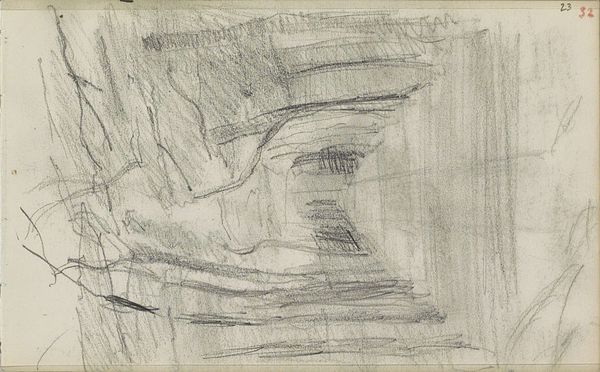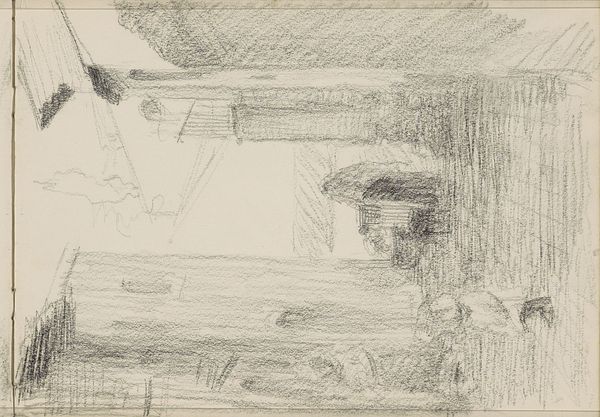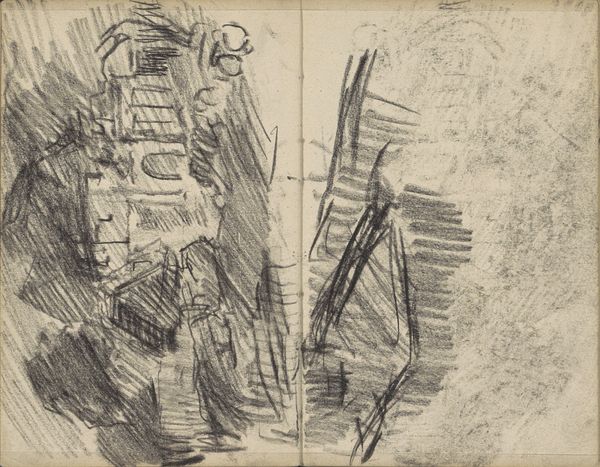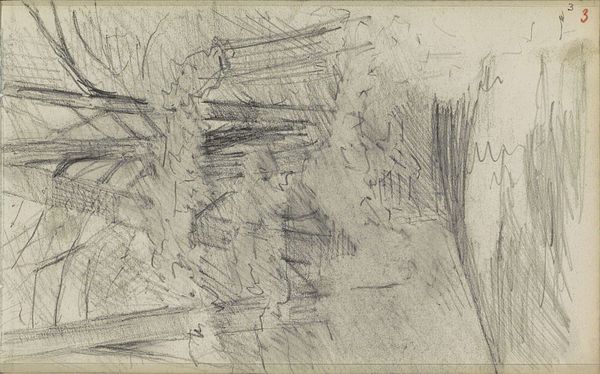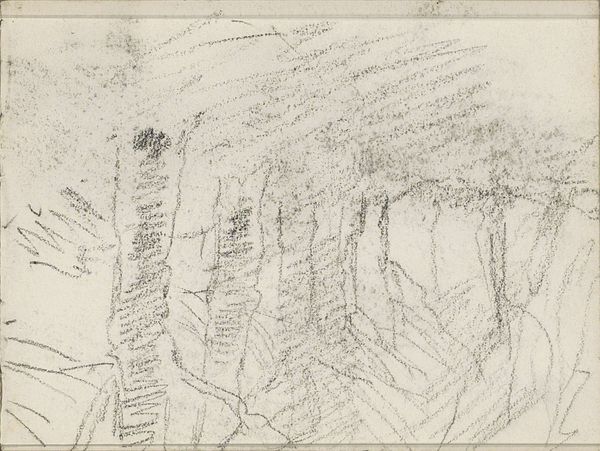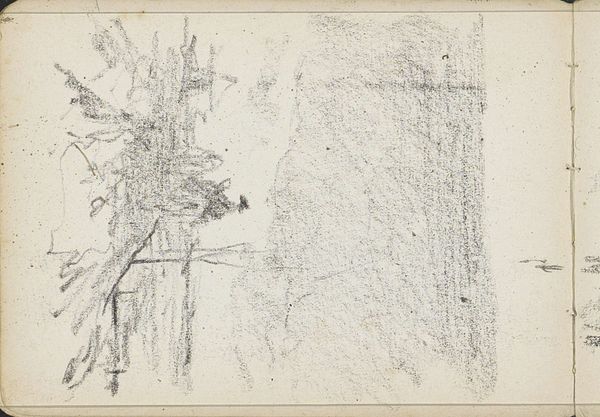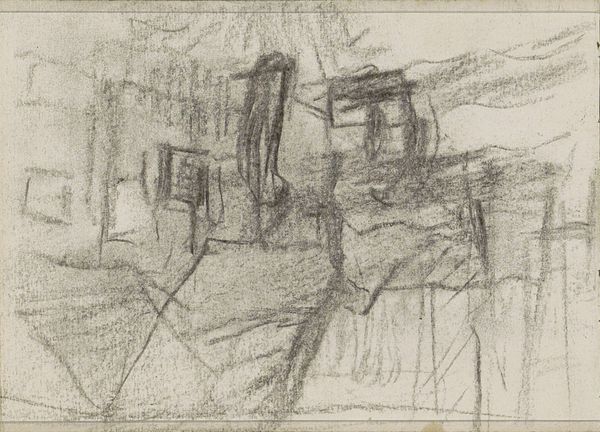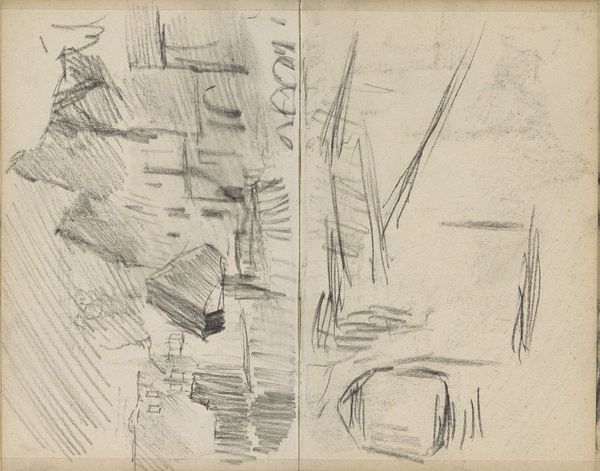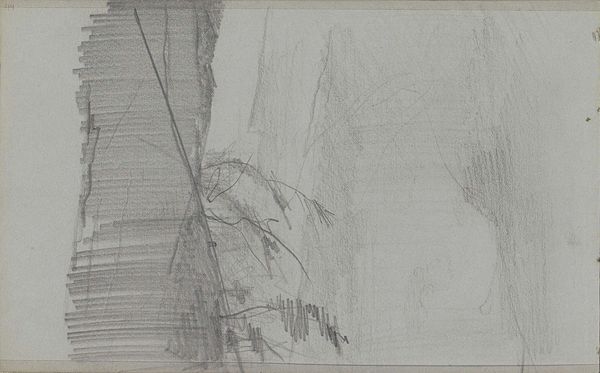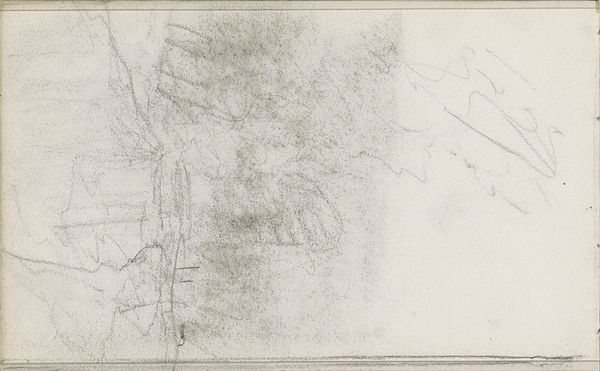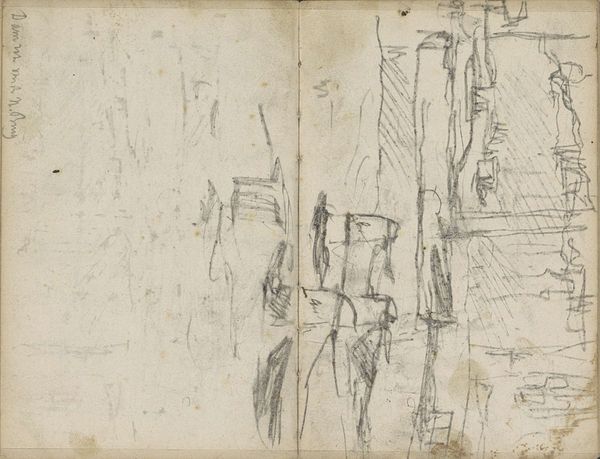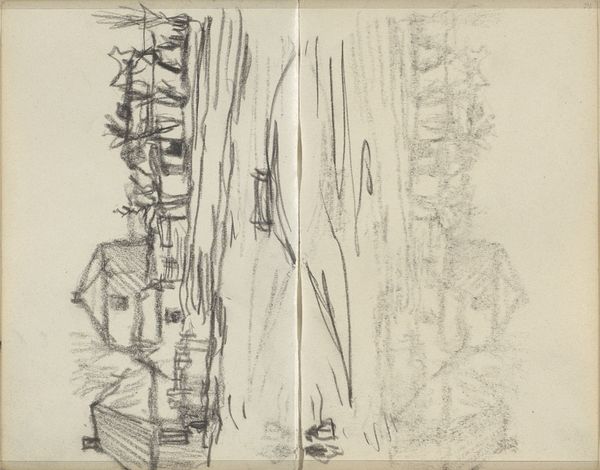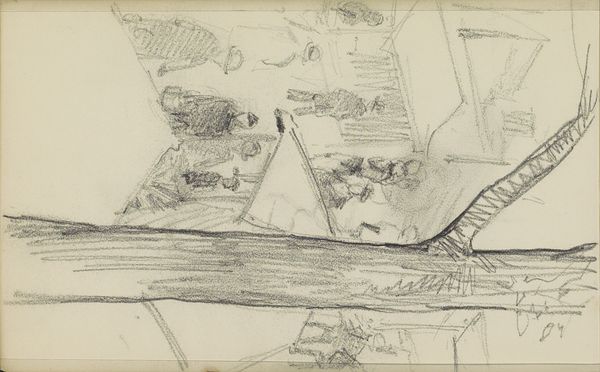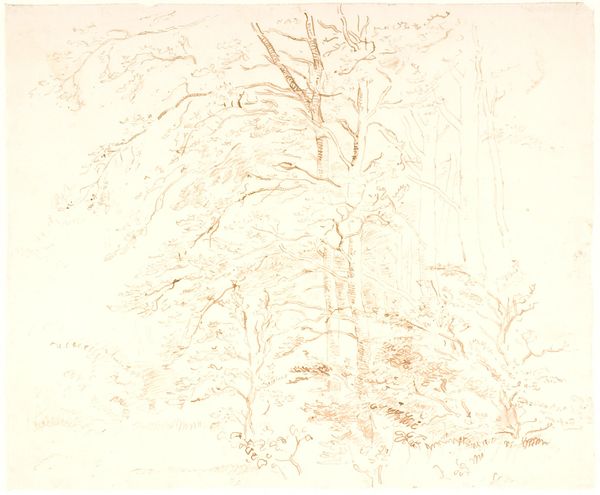
drawing, charcoal, pastel
#
drawing
#
landscape
#
charcoal drawing
#
charcoal
#
pastel
Copyright: Rijks Museum: Open Domain
Curator: Welcome. Today, we will discuss a drawing titled "Bospad," by Bramine Hubrecht, created sometime between 1865 and 1913. It is rendered in charcoal and pastel. Editor: My initial response is one of incompleteness, or maybe of potentiality. The charcoal and pastel feel raw, the composition unfixed—like a fleeting memory of a woodland path rather than its solid reality. Curator: Precisely. Notice how the artist uses broad strokes and varying pressure to suggest depth and texture. The lack of defined lines invites the viewer to complete the image, engaging actively with the artistic process. The earth-toned palette also reinforces the connection to the soil and to natural elements. Editor: And the suggested path… Who is allowed access? For whom is this nature intended? Looking at the social landscape of the late 19th century, ideas about nature, leisure, and who could access them were heavily mediated by class and gender. Was Hubrecht conscious of these boundaries? Was she subverting or upholding them? The absence of any figures encourages a consideration of access, not the pleasures or benefits from its potential allowance. Curator: The sketch certainly prioritizes formal values over detailed representation. It is the tension between light and shadow, line and mass, that generates the spatial illusion. The diagonal composition leads the eye into the unknown, inviting a sensory reading beyond mere illustration. It makes use of the aesthetic devices consistent within the late impressionist schools that emerged in Amsterdam. Editor: Perhaps the very act of sketching outdoors—itself somewhat novel for women artists at the time—signals a breaking down of certain barriers. What would it have meant for Hubrecht to navigate those landscapes as a woman? We must consider that while landscapes seemingly appear neutral, they can reinforce socio-political systems. Curator: What resonates with me is the way the simplicity of its form—an economy of means if you will—transcends its immediate subject matter. Editor: For me, the unrefined nature prompts an interesting conversation about both power and the democratization of artistic spaces. Thank you for that analysis.
Comments
No comments
Be the first to comment and join the conversation on the ultimate creative platform.
